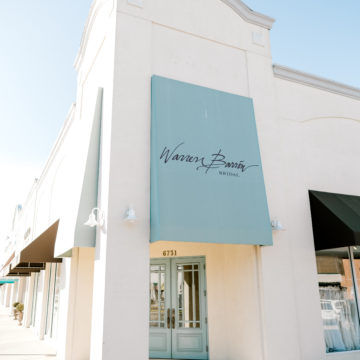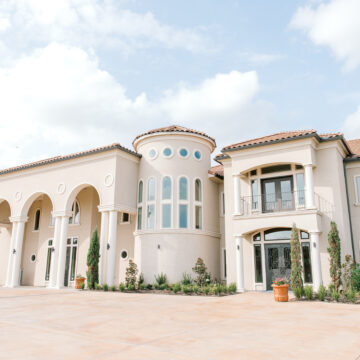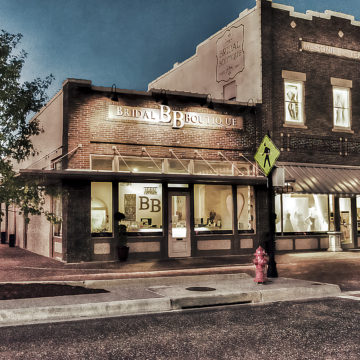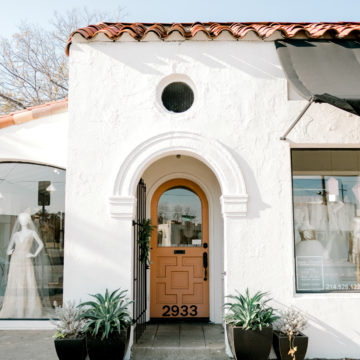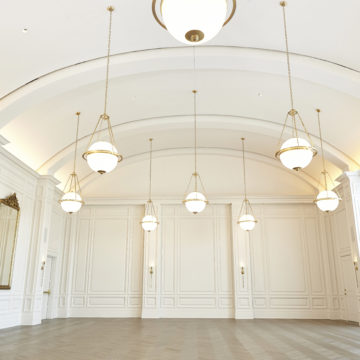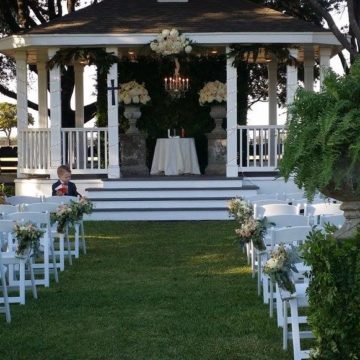
To recognize the courage and sacrifice of our healthcare workers, we caught up with past D Weddings brides and grooms working in this industry to understand how the pandemic is affecting them.
Kyle Blackburn and Saumya Tayi met through the technology of a dating app. Two years later, they were engaged. They tied the knot on November 3, 2018, and were featured in the Fall/Winter 2019 D Weddings issue. Two years after their wedding, Kyle and Saumya—an outpatient neurologist and a forensic consultant, respectively—are now employing all kinds of technology to successfully work from home. You know, Zoom, email, and the like.
For the curious, forensic consulting involves the investigation of fraud allegations, valuing businesses, and corporate litigation. Basically, Saumya explains, forensic consultants are the people who put numbers on lawsuits. When a person sues someone else, forensic consultants calculate the amount owed. Saumya always had the ability to work at home but is now required by her employer to do so. Kyle kindly offered her their home office, which left him calculating how to maintain his practice and respect patient privacy laws from home. In early April, he moved his practice to telemedicine, which consists of video and telephone visits with patients. While the transition was mostly smooth, the trouble has been finding a spot in the house where he can conduct patient visits while complying with patient privacy laws. He normally ends up cloistering himself in a room.
As it turns out, ignoring the hippos in the room—laundry, tidying up, watching television, and other tempting distractions—can be more difficult than upholding HIPAA regulations. Both Kyle and Saumya have found themselves needing to exercise a greater level of self-control and discipline during their workdays, as daily household chores can become a distraction when it is time to focus on work.
“I often am reminded of when I was in college,” Saumya laughs. “It was my first semester and I called my sister, who is a little older than me, so she’d been through school already, and kept telling her how proud I was that I was keeping my apartment so clean. She was laughing and was like, ‘You’re just not doing your work! You’re procrastinating on your schoolwork by cleaning!’”
The couple has been sheltering in place longer than most because they traveled in mid-March to a friend’s wedding and self-quarantined upon return. They have picked up various tricks to help keep them sane while sheltering in place, including cooking recipes they saved up for “rainy days.” They’re also baking cookies, eating more ice cream, and walking the trails less traveled (Santa Fe, not Katy, because it is too crammed, Kyle says). They have also set up some routines, like eating dinner together each evening whenever possible, because, “You can certainly, probably, spend your whole day behind the computer if you really wanted to since you’re already at home,” Saumya points out.
“I think the schedule is the big thing, making sure that you make time for each other at the end of the day,” Kyle says. “The biggest thing that we are doing for our own sanity is making sure we keep the place clean and organized.”
Work has also been a help. As a crisis consultant, Saumya’s services are in high demand. If she wants, she can wake up at 5:30 a.m. and begin working by 5:45 a.m. She is also watching training videos on bankruptcy and restructuring because her consulting firm is often involved in these matters. “That’s kind of a daily topic that comes up,” she says. “I should do everything I can to make sure I am technically trained in that work. As you can imagine, a lot of companies, unfortunately, are going to face [bankruptcy] after this.”
Although elective surgeries were stalled for much of March and April, Kyle’s workload dropped only a little bit. Although working from home has kept them busy, they are ready to get back to in-person work as soon as possible. Kyle, especially, looks forward to face-to-face meetings with his patients. “I certainly look forward to the day that we get to see each other again,” he admits. “But I think, given the circumstances, we have been able to do a pretty good job of adapting neurology to this.”
“[Shelter-in-place has] definitely underscored the things that really matter about in-person contact, like how much easier it is to sort through a complex problem when everybody is in the same room,” Saumya adds. “The feedback I’m getting from people I talk to is that it’s very isolating, especially for people who live on their own, and even for people who have families. It’s hard to be so isolated.”
One thing Saumya and Kyle have missed during shelter-in-place orders is going out to eat and grabbing a cocktail. “That probably entertained us four nights of every week,” Saumya says. Even so, they remind themselves to remember that the best way to stay safe is to continue social distancing. Saumya hopes people can take comfort from the fact that everyone is in this together, striving for the same goal. “I think you can’t emphasize enough the importance of what we’re all doing right now and practicing good social distancing,” Kyle says. “It really is the key to this.”







